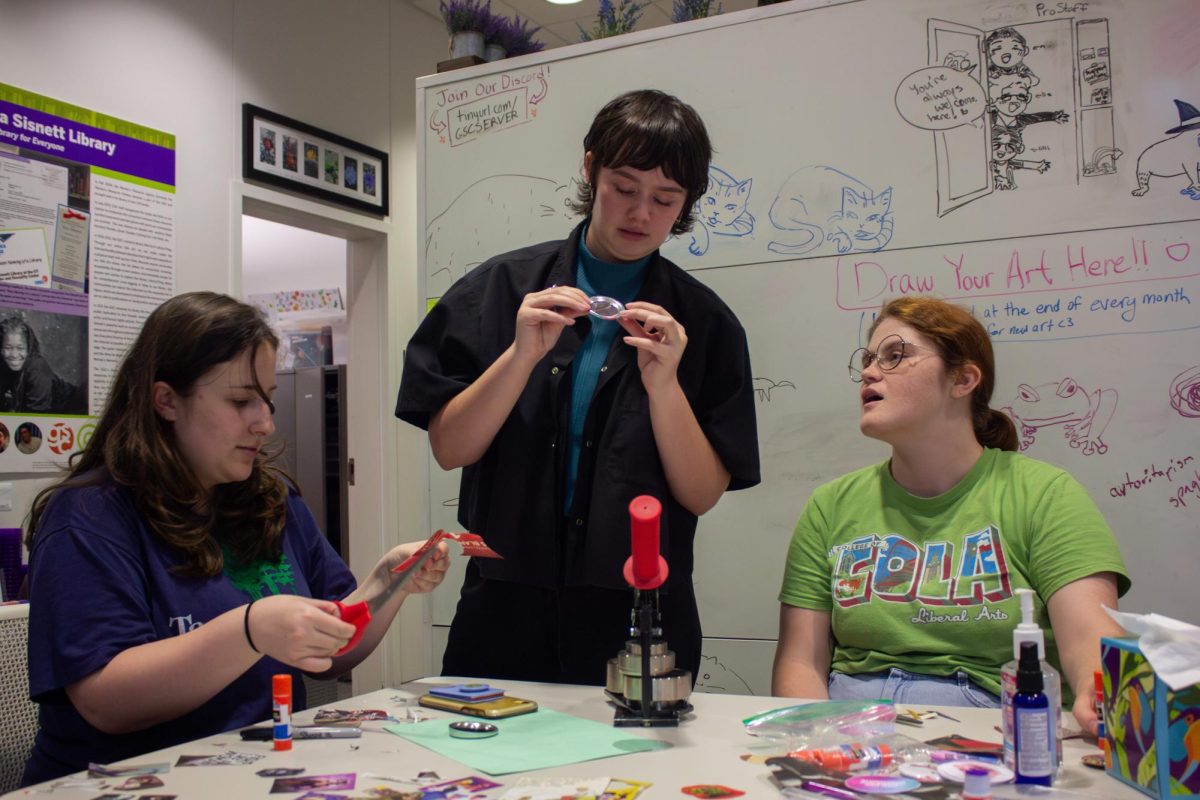Waves of change are happening on the UT campus as the school has begun implementing more programs to address student wellness and mental health, from the addition of the Interpersonal Violence Peer Support (IVPS), to the subsidization of mental health appointments.
Kelly Soucy, director of Student Emergency Services, said UT added two new programs to support students in the wake of trauma or emergencies this year. She said IVPS provides confidential peers to act as a support to students who have been through a traumatic experience, while additional support from the food pantry and career closet will help students deal with food insecurities and interview necessities they might not be able to afford on their own.
“Students on campus told us this is what they needed,” Soucy said. “Surveys told us that after a traumatic event, most of the time students are going to peers.”
Sara Kennedy is the director of strategic and executive communications and provides information on many of the programs that UT’s Student Emergency Services offers to help its students across campus, so students can be aware of the help they can receive.
“Student Emergency Services exists to fill a hole,” Kennedy said. “To make sure that our students are able to succeed academically and to not be hindered by some of the things life throws at us.”
Kennedy said she works to make students all across campus know about the options they have in dealing with a situation.
Along with new additions to UT’s Student Emergency Services, President Gregory Fenves announced in January that mental health appointments are now going to be subsidized by the school, dropping a price barrier that may have previously existed for some students.
Public relations junior Halley South has used UT’s mental health services before, and she believes that subsidizing the cost of mental health appointments has had a positive impact on campus.
“Before (the subsidy), many people were limited from the healthcare they needed,” South said.
Dr. Marla Craig, associate director for clinical services at UT, said that since the appointments have been subsidized, mental health services have seen a 45 percent increase in students reaching out to access services.
Dr. Craig also said that students’ wellbeing is always on the forefront of the mental health services’ mind and that she thinks the subsidization is great as it gets rid of previous barriers that may have existed.
“When a student’s coming on campus for the very first time and throughout their career here and after that,” Craig said. “I don’t look at academics separate from wellbeing, or wellness.”
Craig said the high influx of demand for mental health services has forced the office to think outside of the box for innovative ways to make sure all students have access to the help they need.
Student Emergency Services is also always looking for ways to expand, or make their current programs better. Soucy said they send out surveys to students to determine what needs to be amended or added in order to provide as much help as possible to students in need.
“There are a lot of accommodations that can be made to those who are struggling,” South said. “But I definitely think their efforts should continue, there’s always room for improvement.”





















